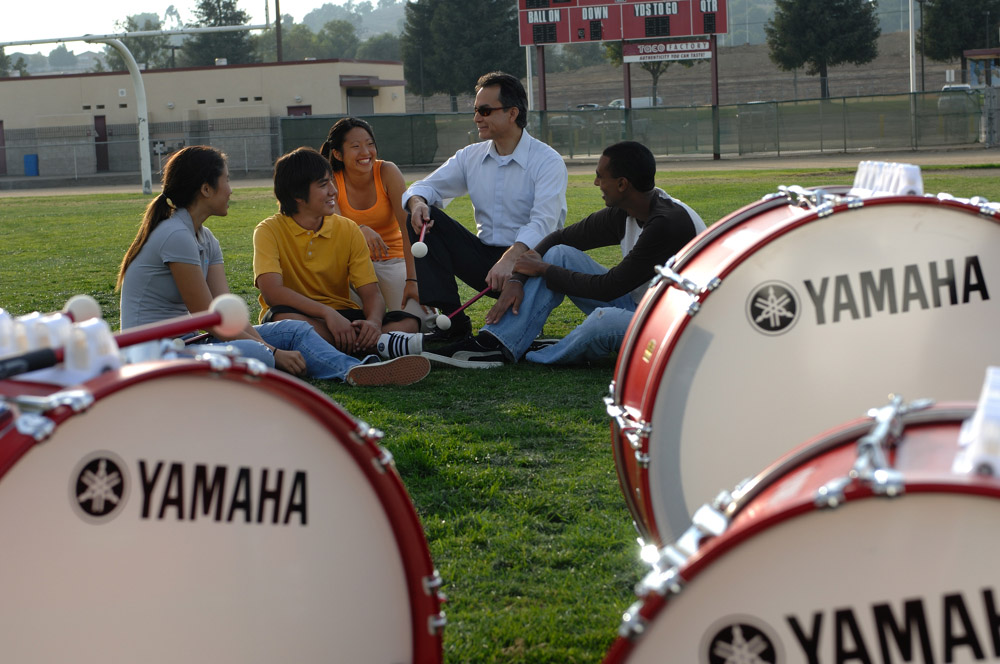The Business of Teaching
The business part of teaching is rarely taught in methods class.
The business part of teaching is rarely taught in methods class.

The Business of Teaching Music
When you go to college to become a music teacher, you learn a great deal about music, repertoire, educational psychology and many other topics that develop you into a great teacher and classroom manager. In my case, what they missed made my life a bit challenging as an educator until I learned the ropes of the business of teaching music. Here are some of the things I learned along the way that made my teaching job a little easier – and more enjoyable.
Instrument inventory
Not knowing exactly what you have means you don’t exactly know what you have. This sounds obvious but I hear of band directors who suddenly find bass saxes and other unique instruments in some unexpected place. Even if you’ve been at a school for a few years, ask your custodians if they have seen anything that closely resembles a band instrument – anywhere on campus. You’ll be surprised to find out what they have seen or what they know.
Knowing your inventory is a great way to schedule repairs so you don’t find yourself needing an emergency repair for a concert. With the plethora of apps and inventory management software out there, keeping up with all your assets is easier and less time consuming. Develop a spreadsheet if you haven’t already, with cells for the type of instrument, a description of the instrument and serial number, make sure you add a cell for condition. It’s also helpful if you add a cell that suggests a “fix date”. If this cell is in a different color, you can quickly spy what needs to be fixed and when.
If you’re too busy to check and evaluate your inventory, have your school music dealer education representative do it. They’ll be more then happy to show you what you have and show you what you need fixed by when. This detail work on your inventory will prevent you from missing critical repairs, but it will give you plenty of history to show administrators when you’re requesting new instruments. Showing the age, and how much the repairs have cost over a certain time period make the discussion much easier.
Receiving a “NO we just can’t get a drum line.”
Of course, all the data in the world may not be enough to convince your administrators that you need a new drum line, background brass or woodwinds, timpani, and other pricey objects. The dollar figures can be so large that even the most supportive administrator will take a big gulp before saying “I don’t think we can afford that”. Of course your band boosters can help, but even some expenditures seem out of reach for them. I’m happy to say; I found a way to replace my drum line and the following year buy updated background brass through leasing. Yes, leasing is a very effective way to maintain a quality program and not have to face those huge price tags all at once. “Leasing?” I’ve heard, “my school doesn’t lease things.” The truth is almost every school leases something. Most often schools will lease their school busses, printers and other large ticket items. Can you imagine what school busses cost? The only cost effective way to do that is to lease them. You can do it too! Through a lease, a school can acquire instruments and obtain full ownership using yearly installments to pay for them. By spreading out the cost over time you can afford expensive items and still have funds available to service your current needs. This is a great argument for your administrator. We only pay a fraction of the total each year but our students get the full opportunity to perform better on a new instrument from day one. The other good argument for your administrators is that by leasing, you avoid inevitable price increases that come year to year, and you minimize your repair budget and the down time that goes with those repairs. Most school music dealers work with companies who offer lease programs on musical instruments – from pianos to piccolos. It’s a method you’ll never learn in college, but knowing about leasing and how to finance instruments will keep your students progressing and your program growing.
"Leasing is a method you’ll never learn in college, but knowing about leasing and how to finance instruments will keep your students progressing and your program growing."
— Ryan Adamsons